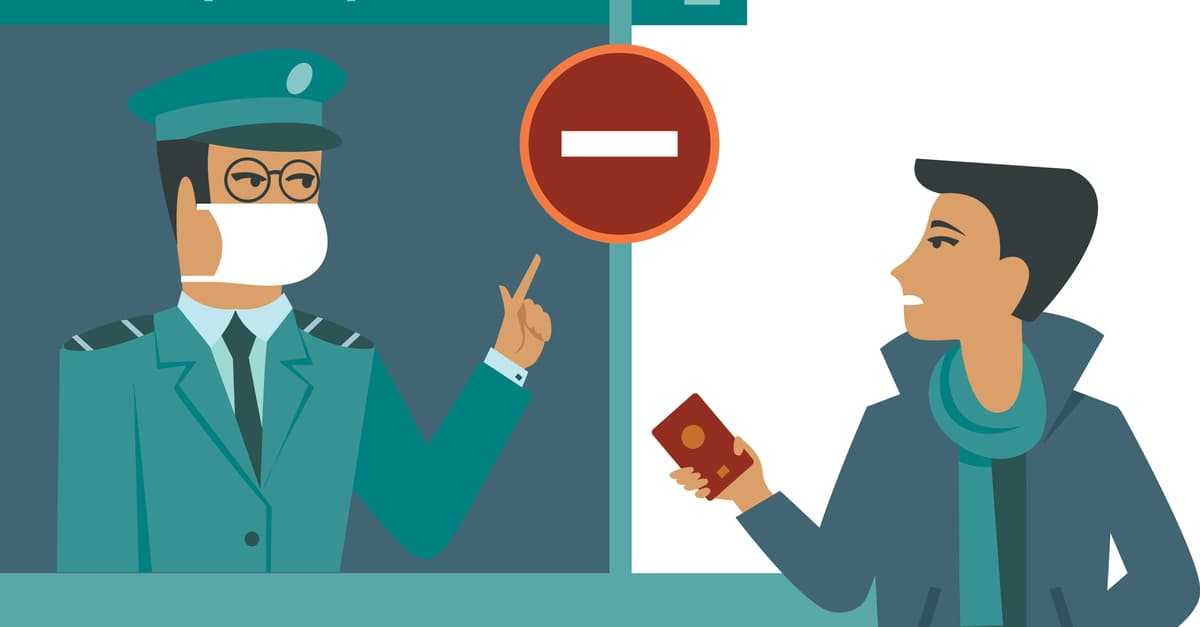5 Things to Know Before Traveling to the U.S. for Medical Treatment or Childbirth
Despite the high cost of medical care in the U.S., medical tourism to the U.S. is quite popular, especially in southern border states and cities with major airport hubs such as New York, Los Angeles, and San Francisco. Some hospitals and clinics even specifically market their services overseas to wealthy cash-paying clients. However, there are some very strict immigration guidelines regarding medical travel. Even well-intentioned medical travelers can be subject to consequences that could have a significant impact on their future ability to travel to the U.S.
Here are some of the immigration-related considerations to think about before planning travel to the U.S. for medical treatment:
A tourist visa can be used for medical tourism
There is no special visa for medical treatment. If you already have a tourist visa, you can use the visa to travel to the U.S. for medical treatment, provided you meet all the additional requirements of entry.
If you do not have a tourist visa, you will need to meet all of the routine requirements of a tourist visa (see prior blog post), in addition to showing the consular officer that you have all the funds to cover the anticipated costs of your medical treatment.
Keep in mind, there is no “humanitarian” visa. Even if you are seeking treatment for a life-threatening medical condition, you must still show you can pay for the medical treatment you are seeking. The consular officer or immigration official must also be convinced that you will return to your home country after receiving the treatment.
You must demonstrate that you have the funds for the treatment.
Whether you are applying for a visa, or re-entering on a tourist visa that you already have, you will need to show that you have the funds available to pay for the treatment you need.
You should be prepared to show:
- documentation from the doctor who has been treating you overseas that discusses the details of your condition and the treatment you need
- documentation from a physician in the U.S. who has agreed to treat you
- estimate from the doctor in the U.S. as to what the treatment will cost (best and worst case scenario)
your ability to pay the cost of the treatment
Unlike many other countries, medical treatment in the U.S. can result in separate bills from multiple providers. The cost estimates that you provide to the consular officer and/or immigration official should list all those costs. For example, for a surgical procedure there may be separate costs for the surgical center, anesthesiologist, your physician, medications, rehabilitative care, medical appliances etc.
If you are not paying for the treatment yourself, it may be difficult to demonstrate your ability to pay for the treatment, unless the person paying is a spouse, very close relative (like a parent), or a reputable charitable organization.
If you are planning to give birth in the U.S., you should expect to show that you have funds to cover all the expenses for you and your baby. Just as with a surgery, a birth in the U.S. will involve bills from multiple providers, and you will also need to show the cost estimates for the pre-natal care you will receive leading up to the birth and the post-natal care for your baby.
Because of the high cost of childbirth in the U.S., immigration officials are extremely strict and will want to be certain that you can pay for the birth, no matter what it costs. They will also need to feel assured that you will not use public assistance, even if you have the funds to pay for the birth. An uncomplicated hospital birth for a self-paying patient, including care for the newborn, could range between $8,000-15,000. If your baby is born prematurely or you experience complications, costs could soar to upwards of $100,000. You will need to show documentation for the expected cost in your specific situation.
If you arrive at the port of entry and you do not have documentation that convinces the immigration official that you will pay for the birth, you could be returned to your home country and your visa could be cancelled. It could be very difficult to obtain another visa and you could barred from entry for a period of years.Additionally, if you conceal your true purpose of travel from consular or immigration officials, you could face permanent visa ineligibilities.
Thoroughly research any all-inclusive medical tourism packages
No travel agency can give you an exact cost of your anticipated medical expenses. If any complications arise, you will still be liable for the entire cost.
Some of these agencies have been investigated for visa and passport fraud, or cited for violating health and safety codes in the lodging space they provide.
If you need advice about traveling to the U.S. for medical treatment, you should discuss your specific situation with a licensed attorney who specializes in U.S. immigration law. Most travel agencies do not employ immigration attorneys.
Retain your proof of payment
On future trips to the U.S, or when renewing your visa, you may be asked to show proof that you paid for the medical treatment you received on previous trips. It is a good idea to carry these receipts when you travel to the U.S., in case you are asked about it. The receipts should show that all providers were paid in full.
Note: If you use public assistance such as Medicaid, or settle the bill in collection at a significant discount, you could be denied entry to the U.S. on future trips. It is important to be able to show not only that the bills are paid, but also how they were paid.
Be prepared for medical emergencies, even when traveling to the U.S for other purposes
If you are traveling in the U.S. and experience a medical emergency, you will be liable to pay the bill. If you do not pay the bill, this could affect your ability to travel to the U.S. in the future. If you use any type of public assistance, this can result in future visa or entry denials. Many travel insurance companies also provide emergency medical coverage. If your health insurance does not cover you overseas (and many don’t), you should look into options for purchasing some type of temporary insurance for the duration of your stay, if you want to avoid being hit with the medical costs of a catastrophic injury or illness.
Regardless of whether the medical treatment you received was planned or the result of an unexpected emergency, you will likely need to show proof of payment (not public assistance) when traveling to the U.S. in the future. Childbirth is rarely viewed as an unavoidable emergency, unless babies are born very prematurely. Therefore, immigration officials may assume that you concealed your true purpose of travel if you give birth in the U.S. “unexpectedly”. This type of fraud can result in a multitude of immigration consequences.
Immigration officials have a great amount of discretion when evaluating a traveler’s eligibility to enter the U.S. for medical treatment, and the consequences of being turned around at the port of entry can be devastating. If you have any concerns about whether your qualifications for medical travel, you should speak with a licensed attorney who specializes in U.S. immigration law.
Recommended Articles

SCOTUS clarified that a legal permanent resident alien can be physically in the U.S., commit a criminal offense, and still be inadmissible.

Fifth Circuit: Former Informants Are Not Protected Group

The Secretary of Health and Human Services has asked the Pentagon to add 5,000 more beds for young people. During last year’s surge of undocumented persons, the military opened emergency shelters to house the migrants at bases in Oxnard, San Antonio and Ft. Sill, Oklahoma.

On September 26th, 2015 U.S. District Judge Dolly M. Gee granted final approval of the settlement in Franco v. Holder, paving the way for previously deported immigrants with severe mental disabilities to request to reopen their cases in Immigration Court, and if approved return to the United States.

The defense attorney has an affirmative duty to properly advise. It is not enough to say it is a “possibility” under those circumstances.

About Michael Harwin
Michael’s skill and experience have been recognized repeatedly. He holds an A-V 5/5 preeminent rating by Martindale Hubbell. He has been named one of the top lawyers in Arizona by Southwest Superlawyers, and one of the best lawyers in Tucson by Tucson Lifestyle Magazine. He also has been named one of the best lawyers in the United States by BestofUS.com , and given the highest rating possible by AVVO, 10/10 Superb. Amazon Books

